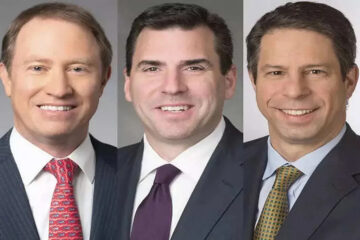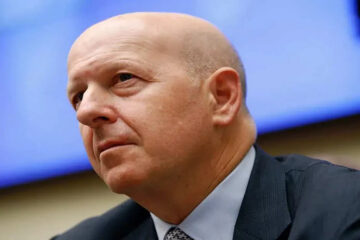Paranoid Practices at Bridgewater: A Dive into Employee Privacy Concerns

Employees at Bridgewater Associates, the investment-management firm led by Ray Dalio, reportedly resorted to unconventional measures to maintain privacy amid concerns of employer surveillance, as detailed in a new book.
Retreat to the Woods
According to “The Fund: Ray Dalio, Bridgewater Associates, and the Unraveling of a Wall Street Legend” by Rob Copeland, some Bridgewater employees ventured into the nearby woods to take personal calls, fearing that their employer might be eavesdropping. This practice gained traction until rumors circulated about the company’s alleged plans to install listening devices in the trees.
Stringent Surveillance Measures
The book alleges that Bridgewater’s surveillance extended beyond the office premises, with claims of cameras covering the property and even monitoring in real-time. It further stated that the company, under the supervision of James Comey, former head of the FBI, employed various surveillance tactics, including tracking keystrokes, printouts, and photocopies.
Employee Concerns and Reactions
Employees reportedly expressed reasonable fears of being monitored both inside and outside the workplace. Some took extreme measures such as removing batteries from their company-issued phones during personal time. Additionally, workers were required to surrender personal phones upon arrival at the office, stored in signal-proof lockers, further fueling concerns about privacy breaches.
Retreat from Surveillance
To evade potential monitoring during personal calls, employees allegedly sought refuge in the surrounding woods. However, this practice ceased when rumors circulated about the possibility of the company installing surveillance devices in the trees, purportedly capable of intercepting calls.
Company Response and Denials
Bridgewater refuted several claims made in the book, asserting that allegations of extensive surveillance were false. The company clarified that while it maintained standard security practices, it did not engage in the installation of listening devices in trees or intrusive surveillance measures.
Dispute Over Accuracy
In response to the book’s portrayal, Bridgewater criticized its accuracy, alleging bias and sensationalism. Ray Dalio, in a LinkedIn post, dismissed the book as a tabloid piece aimed at sensationalizing rather than accurately depicting the company’s work environment.
The revelations in “The Fund” shed light on the delicate balance between employee privacy and corporate surveillance practices, raising questions about the extent to which companies should monitor their workforce.
















